Applied Criminology: Evaluating Immigration Removal Centers in the UK
VerifiedAdded on 2022/09/05
|5
|1076
|18
Essay
AI Summary
This Applied Criminology essay examines the practices of immigration removal centers (IRCs) in the UK, focusing on the extent to which detention is grounded on differences in human beings. It details the circumstances under which individuals are detained, including entry into the UK, asylum claims, and exhausted appeal rights. The essay also identifies individuals who should not be detained based on Home Office policy, such as those with mental health issues, victims of torture, gender-based violence, modern slavery, or serious physical disabilities, and pregnant women. It highlights the financial costs of detention and the availability of more cost-effective alternatives. The author refers to several academic sources to support the arguments and provide a comprehensive overview of the topic. The essay also touches upon the ethical considerations and challenges surrounding immigration detention, emphasizing the importance of human rights and the need for fair and just policies.
1 out of 5
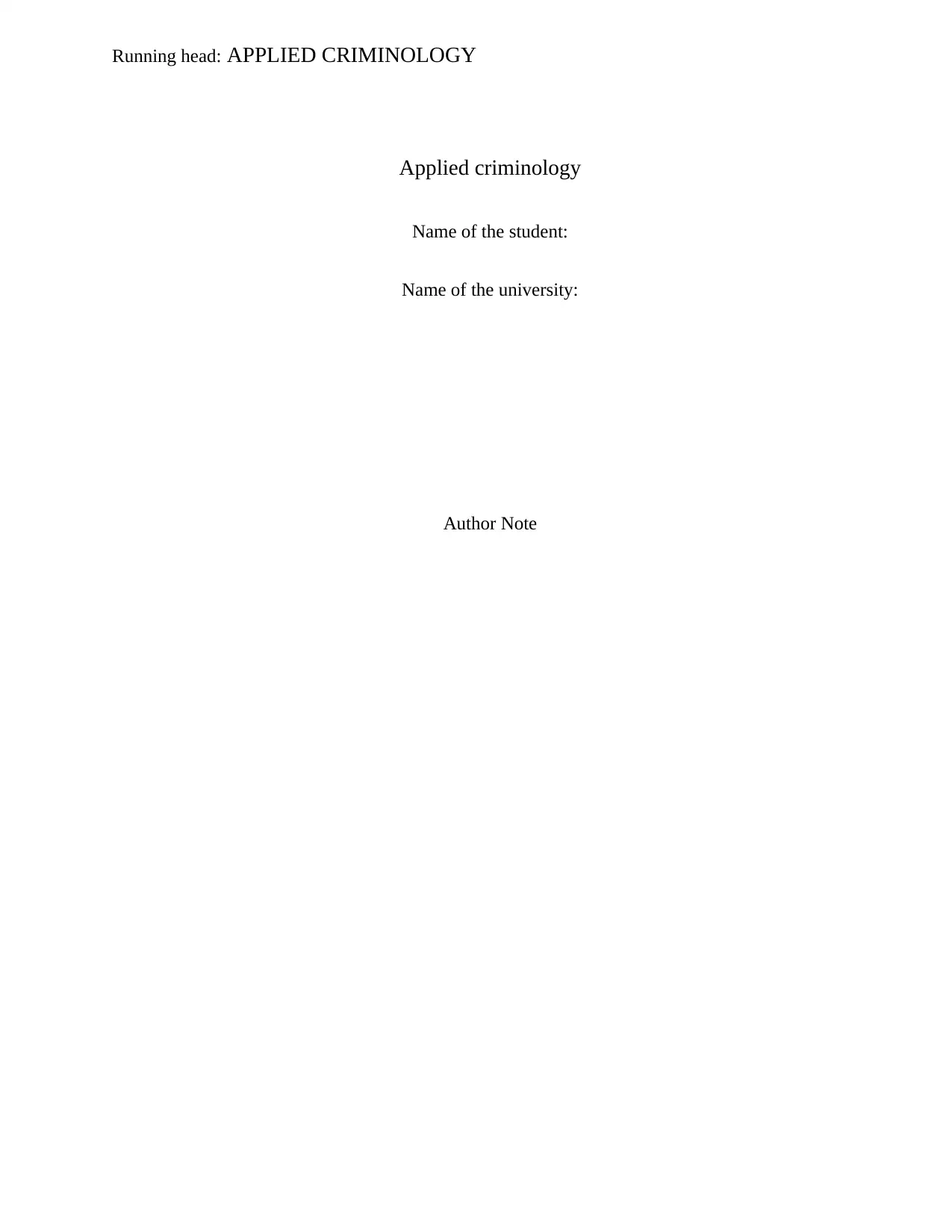
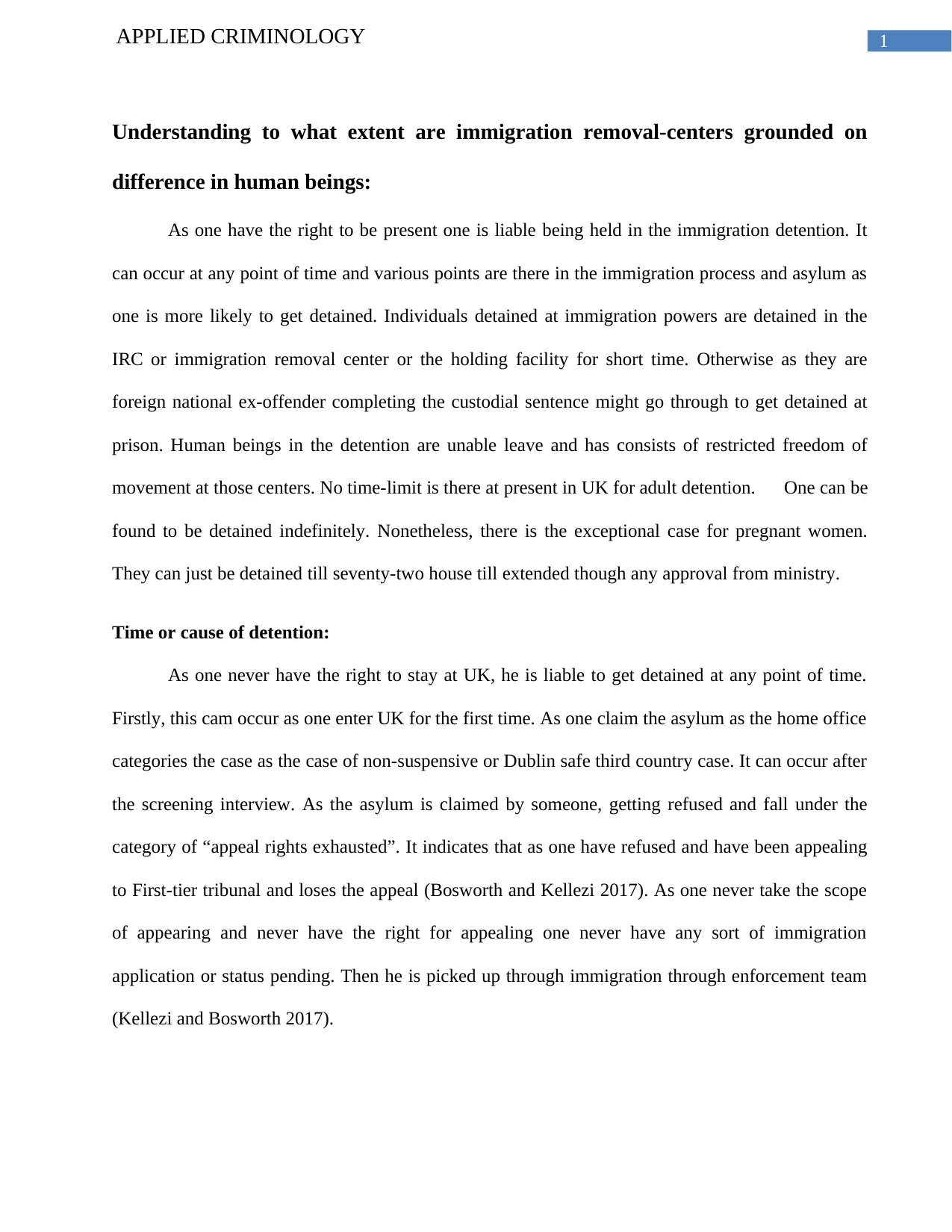
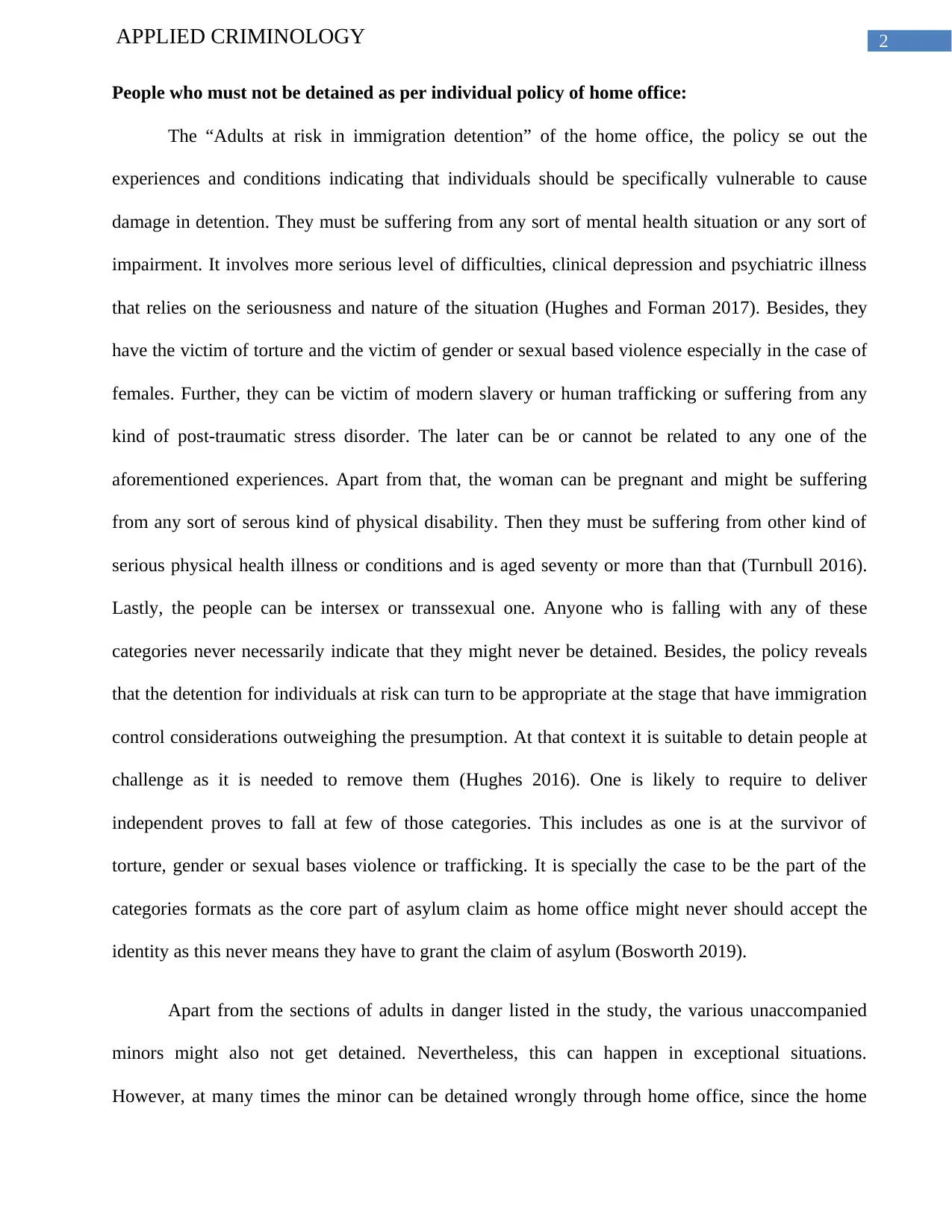

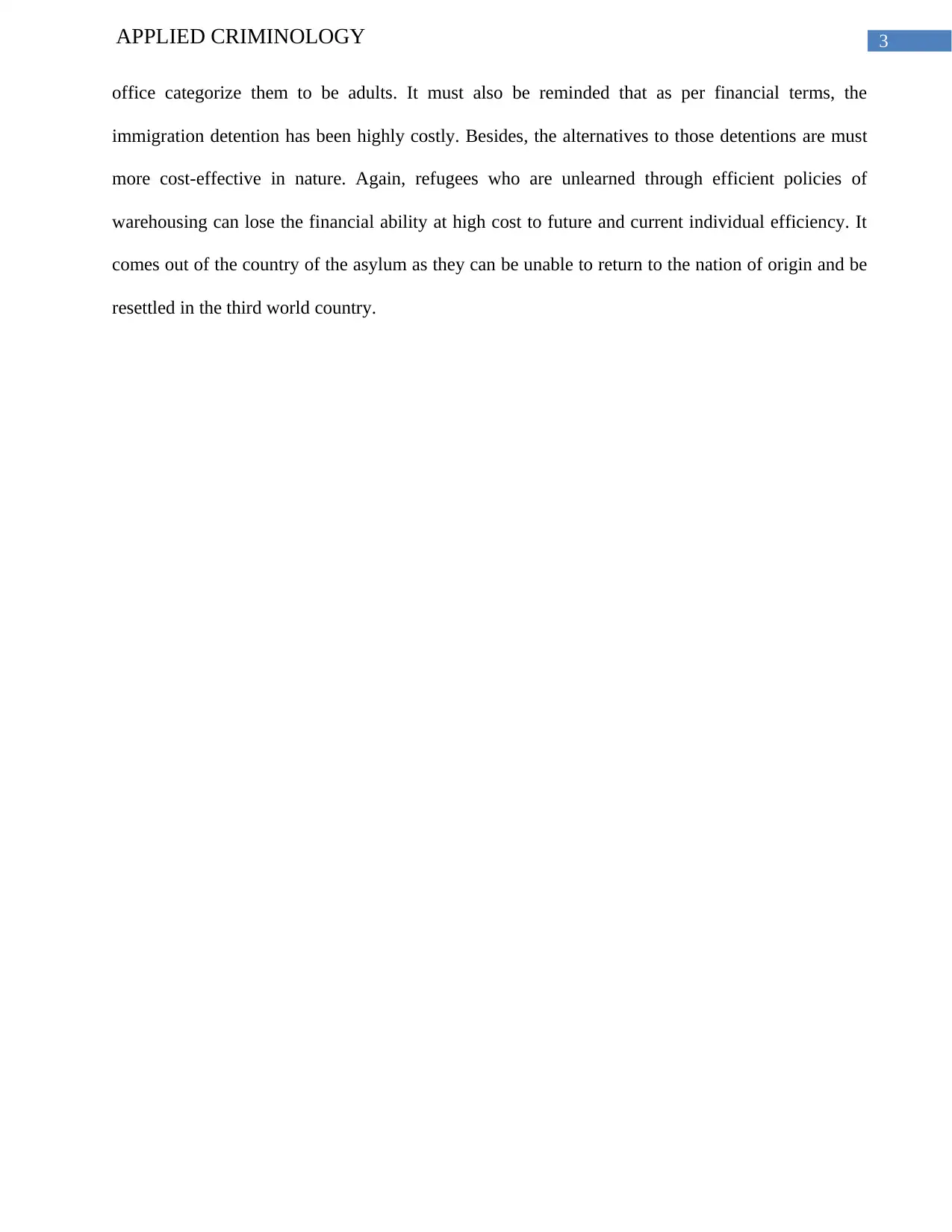
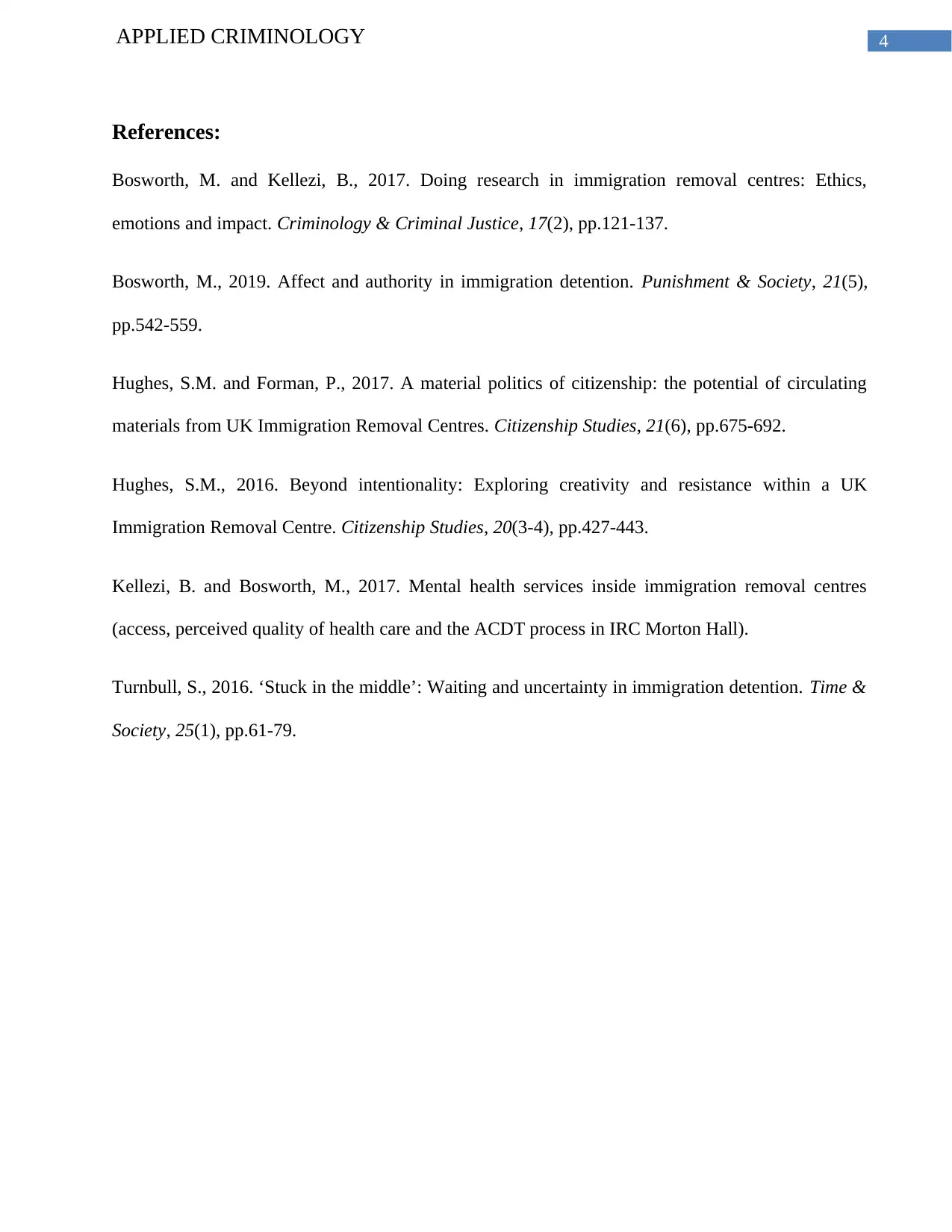
![[object Object]](/_next/static/media/star-bottom.7253800d.svg)